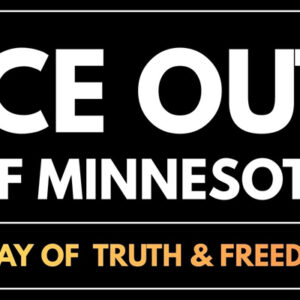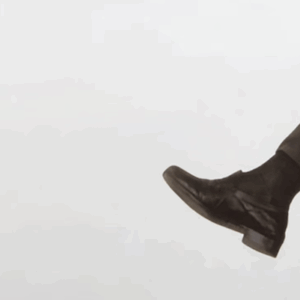
20 Literary Voices On What to Do Now
Lauren Groff, Yaa Gyasi, Nikki Giovanni and Others on Moving Forward and Fighting Back
In the week since the inauguration, anyone who had any doubts about how terrible Trump would be as a president has surely reconsidered. The slew of appointments, executive orders, “alternative facts” and planned policies coming from our new administration is truly staggering. So, of course, has been the voice of the resistance, which develops new champions every day (National Parks employees, I’m looking at you). Still, it’s easy to feel helpless and despairing right now, and it’s just as easy to feel so overwhelmed by so many different calls to action—you may not know where you should start, or what is legitimate, or who needs you most. Perhaps this is a good time to look to our public intellectuals for guidance, and to aid you in that effort, here are twenty writers who have offered suggestions on how to move forward—with your rage, with your art, with your resistance—in this new and terrifying era.
Yaa Gyasi, in The Guardian:
“It is actually quite difficult to be good, to clean up the dirty laundry rather than let it accumulate on the floor. Everyone would like to believe that they would have been a stop on the Underground Railroad or hidden a Jewish family in their attic. No one wants to believe they’d have been the slave owner or a part of the crowd that gathered to watch the lynchings because it was something to do, or even the person who didn’t go, but didn’t do anything to stop it either. It’s easy to see why the slave owner is bad. Harder to see why the crowd is. Cutting to see that most of us are that last person. We do nothing, or very little, to address the ruin in our homes.
In the home you are allowed to tell that racist joke you would never say in public. In the home, you don’t really mean it. In public it makes you look like a bad person, and you are not a bad person. In the home you are allowed to forbid your daughter from dating her black boyfriend. “It’s not personal,” you say, because you are one of those people for whom politics is not personal; the boyfriend, now dumped, is one of those people for whom it is. On the bus, you clutch your purse a little tighter when the black kids sit next to you. You are not racist. You’re just being safe. From the home, you see the black child riding his bike outside. You call the police. Maybe he has a gun? Or is it a toy? Your private thoughts, your imagination, carefully devised and tended through the centuries-long project of institutionalised racism, become a policeman’s public action, of personal consequence to the now dead child, his living family. You didn’t mean for him to die. You just can’t be too careful when it comes to those black people, those Muslims, those Mexicans. When your co-worker says this, you smile tight-lipped. Your co-worker’s racism is not your problem, is not personal. You just want to go home.
This level of interrogation, down to your private, personal thoughts, is exhausting and uncomfortable, but it is also necessary. Because the next four years will be a kind of test. It is not enough to go to the protest, if when you go home nothing in your life changes. If black lives (Muslim lives, women, etc) matter in public, in your tweets and on Facebook, during the protest, they must also matter in private and in practice, in how and what you teach your students, in who you hire at your office, what you feature in your lifestyle blog, your magazine, in who sits in the writers’ room and director’s chair. You can not just accept the things you see around you as consequences of some random and unjust world. You are a part of that very world.”
Lauren Groff, on Twitter:
“You’re feeling angry. Good! Here are a few thoughts on living with rage, from someone who was born with it twisted into her DNA. / Icy rage is constructive. Look at pics of MLK, Gandhi, and Mother Theresa; if you don’t see people incandescent with anger, look again. / Do not feel guilt or shame about your rage, no matter what societal norms tell you. At this point in history, rage is healthy. / But if you don’t know how to deal with it, rage will eat you up. Thoughts about coping: / Rage without action is just despair. Despair will kill you. Even if your action is small, it’ll let out pressure. / A Tweet is not an action. A Tweet is preaching to the choir. Find a way to open the windows and preach to the people on the sidewalk. / Make lists. Long-term, medium-term, and short-term objectives and actions to get there. / Choose the things that matter most to you and focus on them like a laser. / Do not demonize the other— Trump voters, Stein voters, Paul Ryan, hypocrites. That’s bad mojo and will come back to hurt you.”
“Not until I marched with millions did I understand how lonely it is to live in a red state. / What became absolutely clear was that we need an incubator in every blue city that identifies and supports female political talent. / I think about the campus organizations at my college–nearly every one run by a brilliant woman. We lose them because politics are dirty. / But the only way to make politics cleaner is to fill every open seat with an idealistic progressive woman.”
Celeste Ng, on Twitter every day, but also in Teen Vogue:
“As the Trump administration takes office — and we see acts of racism, misogyny, homophobia, and other forms of discrimination around the country — ask yourself: What’s important to me? What do I care about, what have I benefitted from that I want to pay forward? Then look for ways to spread help and hope.
Daunted? Set up a #smallacts Monday with friends, so that you keep each other accountable and don’t use “too busy” or “too scared” as an excuse. It’ll be more enjoyable, too, which means you’ll keep at it.
Here are 20 ideas for #smallacts to get you started. Try doing one every week — or even one every day. Share what you’ve done on social media, so others can follow your example. Search the hashtag to see other people’s ideas and tag your own. And keep up the fight.
[What follows is a great list of actions that you should read in its entirety]
Still not sure how to get started with #smallacts? Just think: Who’s hurting? How can I help them feel better? And… go.”
Ijeoma Oluo in The Guardian (She offers seven actions to take in the essay; here are two):
“Decentralize whiteness: Just about every aspect of western culture centralizes whiteness. Our history, infrastructure, medical system, justice system, education system, entertainment industry – and yes, our social justice organizations – all do this. Whiteness is default, it’s ubiquitous and it’s insidious.
We don’t have to purposefully center whiteness. When we neglect to decentralize it, it will be automatically centered. So work to decentralize whiteness: in your children’s school lessons, in your PTA meetings, in your office meetings, in your city council meetings, in the film and TV you watch, in the music you listen to, in the leaders you support. If you do not decentralize whiteness in your movements for progress, you will leave people of color behind. And what kind of progress is that?
…
Remember what you’re fighting for: It is very easy to become hyper-focused on what we’re fighting against—neo-Nazis, Islamophobia, racism, sexism. But nothing is a better and more important motivator than what we are fighting for. We are fighting for our communities, for our families, for our future.”
Angela Davis, at the Women’s March:
“We dedicate ourselves to collective resistance. Resistance to the billionaire mortgage profiteers and gentrifiers. Resistance to the health care privateers. Resistance to the attacks on Muslims and on immigrants. Resistance to attacks on disabled people. Resistance to state violence perpetrated by the police and through the prison industrial complex. Resistance to institutional and intimate gender violence, especially against trans women of color.
Women’s rights are human rights all over the planet and that is why we say freedom and justice for Palestine. We celebrate the impending release of Chelsea Manning. And Oscar López Rivera. But we also say free Leonard Peltier. Free Mumia Abu-Jamal. Free Assata Shakur.
Over the next months and years we will be called upon to intensify our demands for social justice to become more militant in our defense of vulnerable populations. Those who still defend the supremacy of white male hetero-patriarchy had better watch out.
The next 1,459 days of the Trump administration will be 1,459 days of resistance: Resistance on the ground, resistance in the classrooms, resistance on the job, resistance in our art and in our music.”
Zadie Smith in New Statesman:
“My gut feeling is that the job of American journalists and writers is going to be to somehow defy the normalisation of what’s happening. I think there are positive signs. It blows my mind that a man who is meant to be preparing to be leader of the free world watched Saturday Night Live [in which Alec Baldwin played Trump] and tweeted three times about it. So, in one sense, it’s a great opportunity for all of us artists, comedians, writers, because he’s so easily wound up! It gives the press an opportunity to be a real fourth estate and do something significant. Which could perhaps lead to impeachment. It’s promising, from our point of view.”
Hari Kunzru, in an interview with Columbia:
“The role of the writer is becoming acutely important. One thing you keep seeing people say online, in response to whatever latest statement by the President-elect, is that nothing means anything anymore. Words don’t mean anything. He’ll say one thing during the campaign and there’s no guarantee that’s actually a policy position he’ll take. He’ll flip-flop, he’ll hint at things. He’s a master of confusion. If writers do anything, it’s to try to dispel linguistic confusion, to try to express ourselves precisely and truthfully. It will be up to us to combat what I see as a degradation of language, and certainly a degradation of public discourse.
…
I’ve always been interested in what the relation of fiction in particular is to political speech and questions of politics. People are very suspicious of the idea of a political novel, with some justification. They imagine it’s an instrumentalization of fiction, that it turns into propaganda. There’s something opposed-to-art about a book that seeks to persuade a political point of view. Having said that, I think novels have quite sophisticated ways of understanding complex situations. You have a lot of tools at your disposal to bring different kinds of understanding into the same space. It can be a useful way of thinking through social and political questions, in order to provide a space where these things can emerge. I think that’s the point where fiction writers can operate usefully—not shackling ourselves to trying to say, “Do this, do that,” or making policy positions, but just to articulating what the questions are that we’re seeking to solve. How we do actually want to organize ourselves?”
Molly Crabapple in The Guardian:
“In four years, if the Democrats become an actual party for the working class, one that campaigns in all 50 states, fights voter suppression, doesn’t court a mythical White Working Class by kicking the brown, black and queer people who still have its back, if it runs candidates who talk in real words, not Goldman Sachs platitudes, and if it fights Trump till the bloody dawn … maybe it has a shot.
To do this, Democrats must learn from their prior sins. The party will be fighting a president they themselves empowered. The Democratic Clinton built mass incarceration, and the Democratic Obama administration championed assassination by drone. The deportations, the torture, the surveillance, the crony capitalism are all part of a system created by Democrats as much as Republicans, all reinforced by adult, bipartisan voices in respectable, badly cut suits.
…
We need to fight for each other, every last one of us. Not to “tolerate”, like one tolerates painful shoes, but to proudly say that this world belongs to all of us, and that we’re not going anywhere. Ethno-nationalists are escaping from neoliberalism’s cracks, just as they crawled forth from the rot of 19th century empires, singing the same false and bloody tune. On the page, and in the streets, we must write a better story.
We have four years.”
Francine Prose in The Guardian:
“What remains to be seen is how staunchly the press withstands the attempts of Bannon and Trump and others to discredit, marginalize, censor and suppress it. One positive outcome may be that our journalists’ commitment to reporting the truth will no longer be mediated by the desire to remain in the good graces of powerful politicians.
Some years ago, I watched a documentary in which a series of reporters told Bill Moyers that they’d hesitated to question the assertion that Saddam Hussein had amassed weapons of mass destruction because they were afraid of “losing access”, worried lest they be denied their places at White House press conferences and on Air Force One.
If that access no longer exists—as Trump and Bannon repeatedly threaten—reporters may lose their reluctance to ask the hard and difficult questions, and may have no choice but to seek out the answers for themselves.
Meanwhile, all of us must do what we can to support our free press: subscribe to newspapers and magazines, donate to the radio and TV stations we trust.
We cannot allow impartial and honest journalism to be something we take for granted—until it disappears. And the more stridently that men like Stephen K Bannon tell us to keep our mouths shut, the more essential it is for us to keep talking, to insist on our constitutional right to speak freely, to write and read the truth.”
Masha Gessen, always, everywhere, but most recently on Full Frontal With Samantha Bee:
“The thing, I think, to do—and this is my recipe—is actually to continue panicking, to continue to be the hysteric in the room, and to keep saying this is not normal. And just remember why you’re panicking—write a note to yourself about what you would never do. And when you come to the line, don’t cross it.”
See also: her “Autocracy: Rules for Survival” at NYRB, and at our own site, “Why We Must Protest:”
“Actually, protest is appropriate any time there is something to, you know, protest. Peaceful protest is as important a democratic institution as are elections. All democratic constitutions under the sun guarantee the citizens the right to free assembly. Rights are like muscles: if they are not exercised, they atrophy. Witness the growing number of countries where the right to free assembly exists on paper but not in practice. It is important to exercise all rights regularly, but especially when they are threatened. Now, when the president-elect has already begun curtailing media access and has criticized peaceful and legal protest as somehow illegitimate, is such a time.
In other words, protest occurs first for the sake of protest. But asserting the right to protest accomplishes something else, too: it marks the current normal before the new normal has had a chance to set in. Each protest asserts preemptively that the right of people to congregate to express their discontent will not be ceded. The citizens have posted guard.”
Cheryl Strayed & Steve Almond, on Dear Sugar Radio:
SA: “You have to be very specific and concrete. For me, right now what I’m thinking about is the Affordable Care Act. This is the first thing where the rubber is going to meet the road, and I want to remain focused on that and not get distracted by the latest Trump antic. I’m not interested in that anymore. Now it’s about figuring out which representatives to contact and how to organize protests in your community.”
CS: “I think we confuse having empathy and compassion for someone with going along with things and accepting things that are unacceptable. For me, part of moving forward was to acknowledge that accepting Trump as our president is an unloving and violent act to marginalized communities and to the friends I have in those communities. Rather than make peace with every group, figure out who you want to protect and how you can do that with kindness and consideration.”
SA: “The real enemy in Trump’s America is cynicism. It’s our job to counteract that cynicism with a cautious idealism about the possibilities that exist in our democracy and about the inconvenient things we’re going to have to do to make change.”
CS: “The only way I’ve been able to stay informed without letting fury rule my life is to channel my rage into something that ultimately feels like love to me. The place I do that the best is in my writing. That’s where I feel like I can tap into the power of story and maybe bring something good into the world.”
SA: “I’m going to proportion more time to organizing and taking action and less time to passively consuming news that is dispiriting me. Part of this will be to get off social media. I know social media is just a tool, but we’ve been using it in a way that has transformed us from a nation into an audience, passively spectating our own ruin. I’m now asking myself, ‘What am I going to say to my kids in 5 years or 10 years? What did I do when I realized that our country’s condition was serious?'”
David Remnick in The New Yorker:
“[T]here is every reason to be on guard against a President whose attachment to constitutional norms seems episodic at best. The Presidency has hardly been free of mountebanks and worse. Richard Nixon, though infinitely more prepared for higher office, ran a criminal operation out of the White House. The combined forces of a free and fearless press, public opinion and protest, the courts, and, eventually, Congress brought him to his reckoning. Maybe the day of transformation will come soon and Trump will be nothing more than a bumptious, vulgar, ideologically unpredictable, utterly survivable conservative. But are you betting on it? Did the months of transition promise anything of the kind?
Six decades after the Constitution was ratified, in Philadelphia, Walt Whitman, the author of “Leaves of Grass” and “Democratic Vistas,” issued a warning similar to Franklin’s. “There is no week nor day when tyranny may not enter upon this country, if the people lose their supreme confidence in themselves, and lose their roughness and spirit of defiance,” he wrote, in the Brooklyn Eagle. “Tyranny may always enter, there is no charm, no bar against it—the only bar against it is a large resolute breed of men [and women].”
In other words, the Constitution is not by itself an insuperable barrier against the authoritarian temptation. As Obama pointed out in his final press conference, there is a distinct difference between debates over policy and moments when “core values may be at stake.” A President can at least try to constrain freedoms, issue racist decrees, intimidate, coerce. And, if that becomes the case, it will be on us, resolute citizens, to protect the republic—to demand, as Franklin said, that we keep it.”
Margaret Atwood, in The Nation:
“Plenty of creative people in the past have rolled over for the powerful. In fact, they’re especially subject to authoritarian pressures because, as isolated individuals, they’re very easy to pick off. No armed militia of painters protects them; no underground mafia of screenwriters will put a horse’s head in your bed if you cross them. Those under attack may be defended verbally by other artists, but such defense counts for little if a ruthless establishment is bent on their destruction. The pen is mightier than the sword, but only in retrospect: At the time of combat, those with the swords generally win. But this is America; it has a long and honorable history of resistance. And its multivoiced and multifaceted variety will itself be some defense.
…
In the short run, perhaps all we can expect from artists is only what we have always expected. As once-solid certainties crumble, it may be enough to cultivate your own artistic garden—to do what you can as well as you can for as long as you can do it; to create alternate worlds that offer both temporary escapes and moments of insight; to open windows in the given world that allow us to see outside it.
With the Trump era upon us, it’s the artists and writers who can remind us, in times of crisis or panic, that each one of us is more than just a vote, a statistic. Lives may be deformed by politics—and many certainly have been—but we are not, finally, the sum of our politicians. Throughout history, it has been hope for artistic work that expresses, for this time and place, as powerfully and eloquently as possible, what it is to be human.”
Chard deNiord in Valley News:
“Has a poet been chosen for the president elect’s inauguration? No. What poet would accept such an invitation? The democratic spirit of poetry itself recoils at the idea of sharing the stage with a man who would mock a handicapped reporter, brag about molesting women, traduce a fallen veteran and his family, espouse unabashed xenophobic and racist views in his anti-immigration speeches, invite the support of the alt-right and David Duke, ignore climate change, and so much more.
So in the absence of an inaugural poet, all citizens who agree with John Lewis’ assessment of the president must step up as self-chosen inaugural poets and “yawp” (Walt Whitman’s term for reading passionately) from the stages of our homes and workplaces. Citizens become witnesses, which qualifies us as unwitting poets, the best kind, and not apprentices. As the collective boss of our elected officials, why not start with the famous salvo of our new reality TV boss: “You’re fired.” It’s a sad start, but a poignant if risible reminder to the executive who has already shown how reluctant he is to move from his tower to the White House.
As a poet myself, who has probably already written too much, I hope against hope that we as poets and writers can find a common voice today and not tomorrow, one that rises up as a chorus across the country, in all its differences, with truths that are self-evident with regard to our common humanity and unalienable rights.”
Nikki Giovanni in The Huffington Post:
“Women are tired of men telling them what to do with their bodies. This wasn’t an election. It was a coup. Russia stole the presidency for Trump. We the people have to fight back nonviolently. It’s the patriotic thing to do.
…
Organize. Resist. My generation did our job. We broke down segregation and now this generation has its fight. I’m so proud of the smart people in Black Lives Matter. They are doing their job and working to fight racism. The women who organized the Women’s March were standing up for black lives. They marched for reproductive freedoms, and equal pay. They are very smart to do what they are doing. It is comforting to see people of all colors joining the fight for equality.”
Natashia Deón, for PEN Center USA:
“We’re all in. We’re grown-ups. And it’s uneasy.
So now we need to be sure that we are the heroes we’ve been waiting for. Let’s be lovers.
Because in that, there’s hope. Active hope is active love. The kind that causes us to stand for each other, together, for protection and, above all, for strategy. Because the war is made up of small battles on the ground every day. Of showing up for each other in meaningful ways. Because the answers have never been only in the hands of politicians or a chosen few, but in ours. Because it’s in our pens, our unity—which doesn’t mean we have to be the same in thought or action—but we have to be actively decided in our daily lives. Because there is where our power has always been.
I have hope that, in this great awakening, we will at last tap into what so many writers talk about—what it means to human—then BE the human you are called to be.”
Paul Auster in The Guardian:
“I’ve been struggling ever since Trump won to work out how to live my life in the years ahead…I have come to the conclusion to accept something that has been offered to me again and again over the years—to become president of PEN America. I have been vice-president, and secretary, but I’ve never wanted to take on the full burden. I’ll start early in 2018. I’m going to speak out as often as I can, otherwise I don’t think I can live with myself.”
And at our own website, in conversation with Paul Holdengraber:
“I’m hoping there is going to be a whole new generation of activists. I’m hoping the young people are going to mobilize and push back because we have to be very vigilant now—otherwise if they do what they say they want to do we are going to lose the country. It’s not going to be America anymore, and all these institutions that we’ve always looked upon as granite buildings—we’re going to understand that they’re actually made out of soap, and when they start shooting their hoses at those places there are just going to be a lot of suds in the streets and nothing much to keep us going as a country, so it’s very scary to me.”
Philip Roth in The New Yorker:
“Unlike writers in Eastern Europe in the nineteen-seventies, American writers haven’t had their driver’s licenses confiscated and their children forbidden to matriculate in academic schools. Writers here don’t live enslaved in a totalitarian police state, and it would be unwise to act as if we did, unless—or until—there is a genuine assault on our rights and the country is drowning in Trump’s river of lies. In the meantime, I imagine writers will continue robustly to exploit the enormous American freedom that exists to write what they please, to speak out about the political situation, or to organize as they see fit.”
Malcolm Gladwell, in The Guardian:
“The last true American bully we had was Joe McCarthy. For a number of years everyone went along with him, and he had enormous success – in the short run. But people get sick of this kind of rhetorical strategy. America’s patience with Trump’s vulgarity will be limited. Fundamentally decent people will long for a return to dignity. That’s what happened with McCarthy. Eventually someone’s going to stand up and say, ‘Enough!’”
Emily Temple
Emily Temple is the managing editor at Lit Hub. Her first novel, The Lightness, was published by William Morrow/HarperCollins in June 2020. You can buy it here.



















